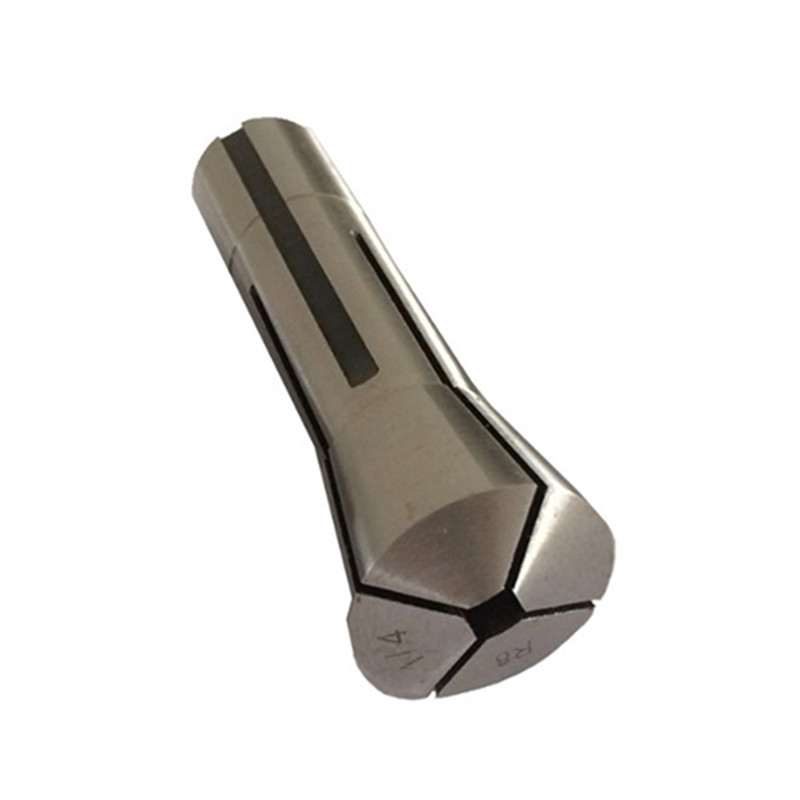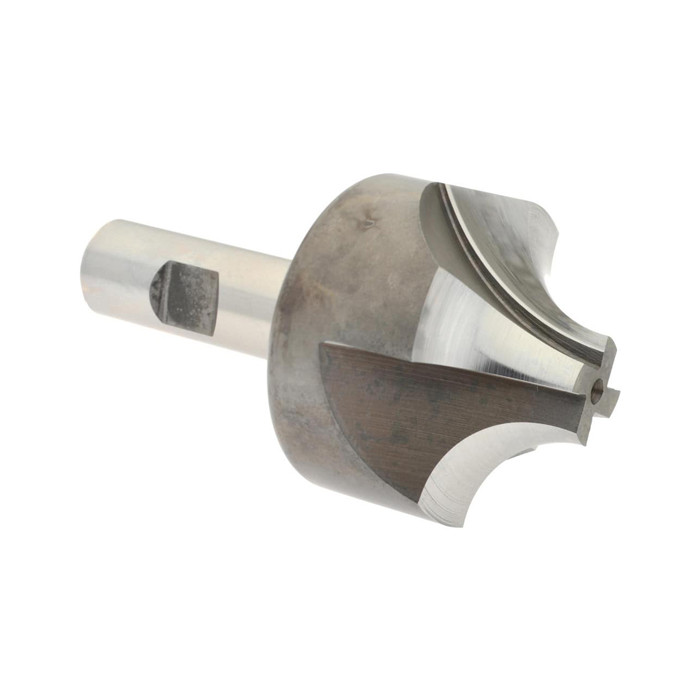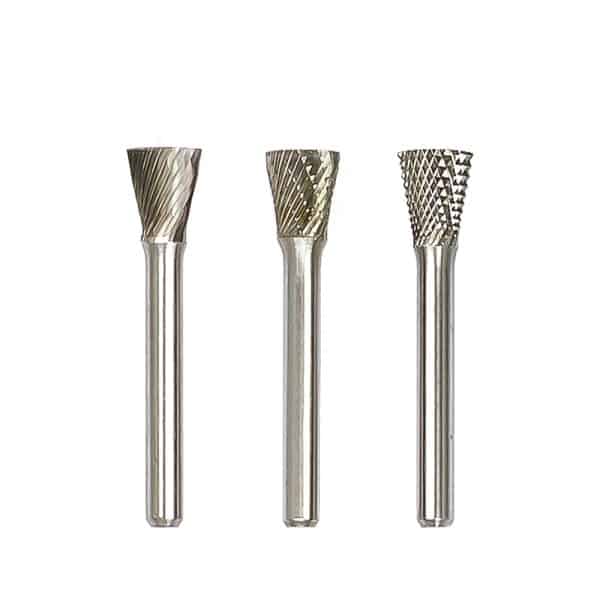end mill holder Factory
Finding the right end mill holder factory can be challenging. This guide provides a comprehensive overview of end mill holders, helping you understand the different types, materials, and factors to consider when choosing a manufacturer. Learn about the key aspects to ensure you source high-quality end mill holders that meet your specific machining needs. We also touch on topics such as precision, durability, and cost-effectiveness to help you make an informed decision.
Understanding End Mill Holders
End mill holders are essential tools in machining, used to securely hold end mills in a machine tool's spindle. They come in various designs, each suited for specific applications and machine types. The primary function is to provide a rigid and accurate connection, minimizing runout and maximizing tool life.
Types of End Mill Holders
There are several common types of end mill holders, each with its own advantages and disadvantages:
- Collet Chucks: Offer versatility and accuracy, utilizing collets to grip the end mill. ER collet chucks are particularly popular due to their wide range of collet sizes and clamping force.
- Shrink Fit Holders: Provide exceptional gripping force and concentricity by heating the holder to expand its bore, inserting the end mill, and then allowing it to cool and shrink, creating a very tight fit.
- Side Lock Holders: Secure the end mill with a setscrew on the side of the holder. These are simple and cost-effective but may not provide the same level of accuracy as other options.
- Hydraulic Chucks: Use hydraulic pressure to clamp the end mill, offering excellent vibration damping and surface finish capabilities.
- Weldon Holders: Feature a flat or groove on the end mill shank that mates with a setscrew in the holder, providing a secure and positive drive.
Choosing the Right End Mill Holder Factory
Selecting a reliable end mill holder factory is crucial for ensuring the quality and performance of your machining operations. Consider the following factors when making your decision:
Material and Manufacturing Process
The material and manufacturing process significantly impact the durability and precision of end mill holders. Look for factories that use high-quality materials such as alloy steel and employ advanced manufacturing techniques like CNC machining and heat treatment. For example, most high-end end mill holders are made of 20CrMnTi, and processed by carburizing and quenching to achieve HRC56-60 hardness.
Precision and Runout
Precision is paramount in machining. Ensure the end mill holder factory can provide holders with low runout (the amount of wobble or deviation of the end mill). Low runout minimizes vibration, improves surface finish, and extends tool life. Typically, a good end mill holder should have a runout of less than 0.0002' (0.005mm). Always ask for the factory's runout testing data.
Quality Control
A robust quality control system is essential to ensure consistent product quality. The end mill holder factory should have rigorous inspection processes in place, including dimensional checks, material testing, and performance evaluations. Ask about their quality certifications (e.g., ISO 9001) and request sample reports.
Cost-Effectiveness
While quality is crucial, cost is also an important consideration. Compare prices from different factories and evaluate the total cost of ownership, including factors such as tool life, replacement frequency, and potential downtime due to tool failure. Sometimes, paying slightly more for a higher-quality holder can result in significant long-term savings.
Top End Mill Holder Considerations
When selecting end mill holders, keep these key considerations in mind:
- Machine Type: Different machines require different types of holders. Ensure the holder is compatible with your machine's spindle type (e.g., CAT, BT, HSK).
- Application: The specific machining application (e.g., milling, drilling, tapping) will influence the type of holder needed. High-speed machining may require shrink fit or hydraulic chucks for optimal performance.
- Tool Size: The end mill holder must accommodate the shank diameter of the end mill. Ensure the factory offers a range of collet sizes or holder bores to suit your needs.
- Coolant Delivery: Consider whether you need coolant-through capabilities to improve chip evacuation and tool life.
Finding a Reliable End Mill Holder Factory: Wayleading Tools Example
At Wayleading Tools, we understand the importance of high-quality end mill holders. We specialize in providing precision tooling solutions for a wide range of machining applications. Our end mill holders are manufactured using premium materials and state-of-the-art CNC machining processes. We offer a comprehensive range of end mill holder types, including ER collet chucks, shrink fit holders, and hydraulic chucks.
Wayleading Tools: Key Features
- High Precision: Our end mill holders are engineered to minimize runout and maximize accuracy.
- Durable Construction: We use high-quality alloy steel and advanced heat treatment processes to ensure long-lasting performance.
- Comprehensive Range: We offer a wide variety of holder types and sizes to suit diverse machining needs.
- Rigorous Quality Control: Our products undergo strict quality control inspections to ensure consistent reliability.
- Custom Solutions: We can provide custom end mill holder solutions tailored to your specific requirements.
Comparing End Mill Holder Types
Here's a comparison of some common end mill holder types:
| Holder Type | Advantages | Disadvantages | Typical Runout |
|---|---|---|---|
| ER Collet Chuck | Versatile, wide range of collet sizes, good clamping force | Runout can be affected by collet quality, can be bulky | 0.0002' - 0.0005' (0.005mm - 0.013mm) |
| Shrink Fit Holder | Exceptional gripping force, high concentricity, excellent for high-speed machining | Requires specialized heating equipment, limited size range for each holder | < 0.0001' (0.0025mm) |
| Hydraulic Chuck | Excellent vibration damping, good surface finish, suitable for delicate machining | Higher cost, can be sensitive to contamination | 0.0001' - 0.0003' (0.0025mm - 0.0076mm) |
| Side Lock Holder | Simple, cost-effective | Lower accuracy, potential for end mill slippage | 0.0005' - 0.001' (0.013mm - 0.025mm) |
Conclusion
Choosing the right end mill holder factory is a critical decision that impacts the efficiency and quality of your machining operations. By considering factors such as material, manufacturing process, precision, quality control, and cost-effectiveness, you can find a reliable partner that meets your specific needs. Consider exploring options such as Wayleading Tools, known for their commitment to quality and precision in end mill holder manufacturing.
*Runout data is based on manufacturer specifications and may vary depending on the specific product and testing conditions.
Related products
Related products
Best selling products
Best selling products-
 R8 Square Collet With Inch and Metric Size
R8 Square Collet With Inch and Metric Size -
 Partial profile 55° Threading Insert With ER & IR Type
Partial profile 55° Threading Insert With ER & IR Type -
 DIN4971-ISO1 Carbide Tipped Tool Bit With Right And Left Hand
DIN4971-ISO1 Carbide Tipped Tool Bit With Right And Left Hand -
 Precision Micrometr Holder For Micrometer
Precision Micrometr Holder For Micrometer -
 Outside Micrometer Set Of Inch & Metric For Industrial
Outside Micrometer Set Of Inch & Metric For Industrial -
 HSS Metric & Inch Corner Rounding End Mill For Industrial
HSS Metric & Inch Corner Rounding End Mill For Industrial -
 Dial Bore Guage From 6-450mm Range
Dial Bore Guage From 6-450mm Range -
 HSS Inch Taper Shank Twit Drills For Metal Cutting Of High Precision
HSS Inch Taper Shank Twit Drills For Metal Cutting Of High Precision -
 Type E Oval Tungsten Carbide Rotary Burr
Type E Oval Tungsten Carbide Rotary Burr -
 Precision V Block And Clamps Set With Heavy Duty
Precision V Block And Clamps Set With Heavy Duty -
 Type N Inverted Cone Tungsten Carbide Rotary Burr
Type N Inverted Cone Tungsten Carbide Rotary Burr -
 HSS 3PCS DIN352 Hand Tap Set With Taper And PLUG Or Bottoming Tap
HSS 3PCS DIN352 Hand Tap Set With Taper And PLUG Or Bottoming Tap










